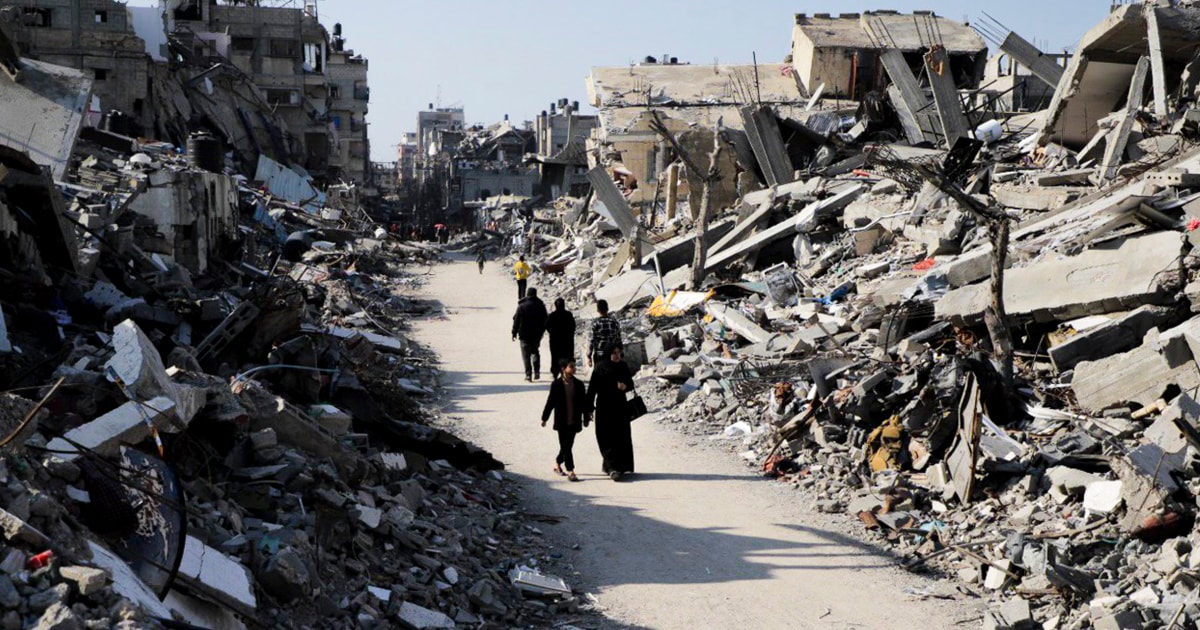
Israel is exploring using international private security contractors to protect humanitarian aid deliveries in Gaza, according to one former and two current U.S. officials.
Israeli officials have broached the idea in recent weeks with senior officials from the Biden administration, which is shipping the components of a floating dock to Gaza so it can deliver aid by sea. Some U.S. officials are reluctant, however, to have American troops or security contractors on the ground in Gaza, the officials said, and are especially wary of having Americans provide armed security.
The officials said the Israeli government has approached several security companies already, but declined to specify which ones. The Israelis also brought up having other countries pay the hefty costs of the contractors, the officials said.
The Israeli government declined to comment.
The White House and the State Department did not immediately respond to requests for comment.
Truck deliveries continue to be the most efficient way to get large amounts of aid into Gaza, according to a senior administration official. The Biden administration has focused on getting land routes open, but the IDF has not allowed in as many trucks as the U.S. wants. The distribution of aid in northern Gaza has also been hampered by the collapse of law and order.
Gen. Michael “Erik” Kurilla, commander of U.S. Central Command, told the Senate Armed Services Committee earlier this month that during a recent visit to the region he saw 2,500 aid trucks held up outside the gates, waiting to bring supplies to Gaza.
Just before President Joe Biden’s State of the Union speech last week, the White House announced that the U.S. would provide a maritime corridor for the delivery of humanitarian aid to Gaza. But the announcement caught many military officials by surprise, according to three U.S. military officials, and one week after the announcement the Pentagon still does not have a full plan for how the U.S. operation will be carried out, including details on who will provide security on the shore.
The general plan is that over about 60 days, more than 1,000 U.S. troops and civilian personnel will set up a floating dock and portable pier system that will be anchored to the shore in Gaza. Then they will ferry food and aid to shore on small boats, without actually setting foot on shore, according to the Pentagon. Once in place, this system could deliver as many as 2 million meals to Palestinian civilians every day.
The Biden administration has told the Israeli government that it expects the Israelis to provide security for the temporary U.S. military pier, but defense officials say the plan for security on the shore is still a work in progress. The Pentagon insists the U.S. military will not have boots on the ground in Gaza for security and is talking to other U.S. allies in the region about roles they can play.
The Israelis will also inspect the aid in Cyprus before it goes to the floating dock, the officials said. It will likely be inspected a second time before being loaded onto Army boats to travel to the pier, according to U.S. military officials.
The Biden administration expects the Israelis to provide some broad perimeter security and to deconflict Israeli military operations near the shore, but the U.S. expects to call on other allies to help as well, the U.S. officials said. At least one scenario has soldiers moving the aid along the pier without being armed, but instead having armed cover from security forces in boats, according to two U.S. defense officials.
The use of private contractors to provide security during U.S. government operations has repeatedly sparked controversy. Private security contractors working for the U.S. government were accused of shooting civilians or using excessive force in several incidents in Iraq and Afghanistan. In 2007, contractors working for Blackwater who were protecting a State Department convoy fired on a crowd in Baghdad’s Nisour Square. Seventeen civilians died. Four contractors were convicted in U.S. courts on charges related to the deaths, but were later pardoned by President Donald Trump.
Who will hand out the food?
Another unanswered question is who would distribute the aid to the Palestinian civilians once it is ashore. The U.N. has warned that a quarter of Gaza’s 2.2 million residents are on the brink of famine.
The hunger crisis is concentrated in the north of the Gaza Strip, and when aid appears, large crowds gather. Aid delivery trucks have been looted repeatedly by desperate people or criminal gangs, according to both the U.N. and Israel.
In the early hours of Feb. 29, a hungry crowd rushed an aid convoy of 30 trucks in Gaza City that had been arranged by a Palestinian businessman. The convoy was guarded by Israeli tanks. Accounts differ as to what happened next. Witnesses said civilians were killed by Israeli gunfire and tank artillery shells. The military said most of those killed and injured were trampled or run over in the chaos. Gazan health authorities said that more than 100 people died and hundreds more were injured.
U.S. officials said they will not be directly involved in the distribution. A senior administration official said it’s hard to imagine a large-scale distribution without the involvement of United Nations agencies like the World Food Program and U.N. Relief and Works Agency, known as UNWRA, adding that the most effective distribution in Gaza has been by the U.N. There could be a role for American and international nongovernmental organizations as well, the official said.
The U.S. is also considering using Palestinian security providers in Gaza to help with aid distribution, according to two U.S. officials. They would not elaborate on who these providers are, other than to say there are groups and factions in Gaza that are separate from Hamas and could help. The officials do not expect Hamas would be directly involved in distribution and said the hope is that using multiple partners would send a message to Hamas not to interfere with the aid.
After a few months, the U.S. expects to hand off the maritime humanitarian mission to commercial companies, the two U.S. officials said, explaining that this is beginning as an emergency operation but can be sustained by civilian companies over time.
For now, the European Union, Germany, Greece, Italy, the Netherlands, the Republic of Cyprus, the United Arab Emirates, the United Kingdom and the United States will be involved in various aspects of the maritime effort, including inspections, financial commitments, construction and continued flow of deliveries once the port is built, the officials said.

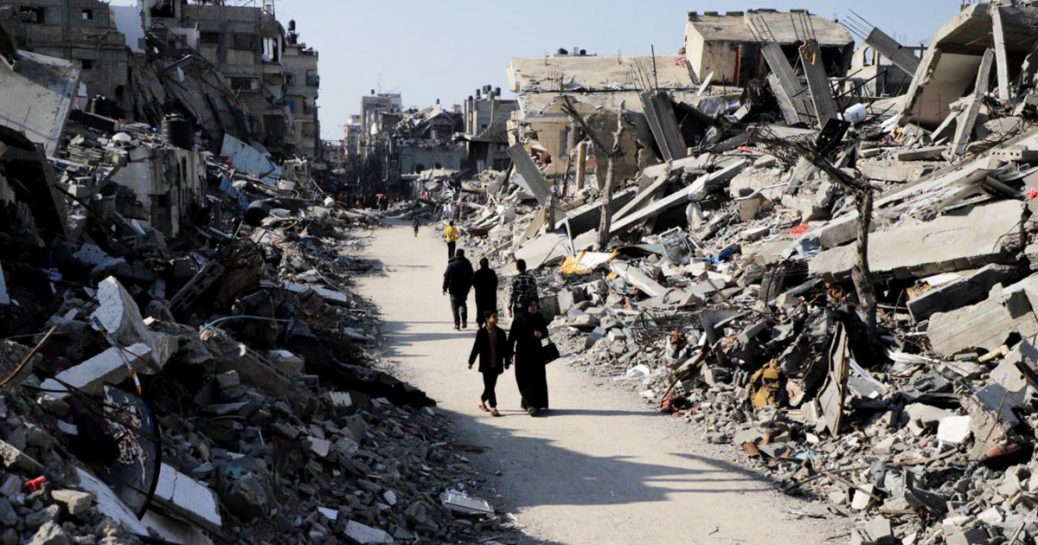

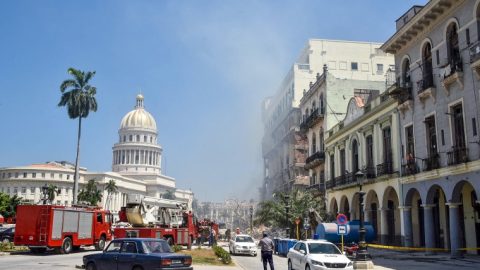


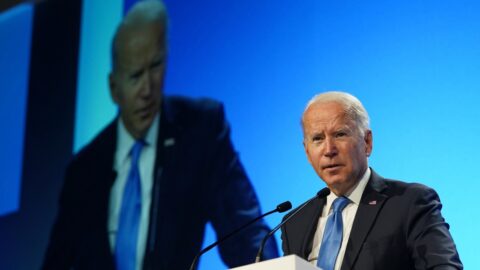
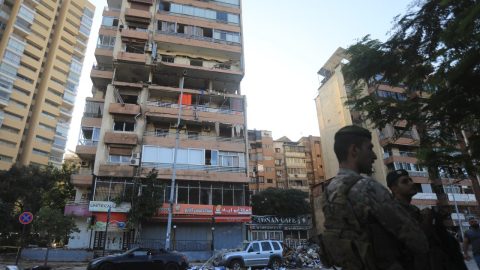
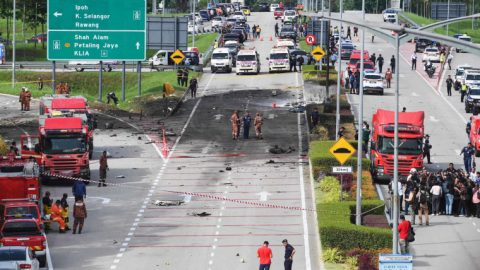
Recent Comments